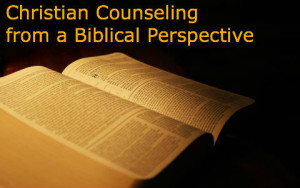 I was recently having a theological discussion with another clergyman. The exact topic that was being discussed is not here of any importance. But the exchange we had started me off on a reflection on how communication is possible between two people when they try to share ideas beyond a merely factual exchange of information. Every discipline has its own vocabulary or, some would say, its own jargon. To talk theology or converse about any other discipline there has to be a common language which both sides tacitly accept. Enormous confusion comes about when we find ourselves using words in a different way from the person we are speaking to. The potential problem of miscommunication is not just a matter of what words we use but also the possible differing philosophical or cultural assumptions which may be held by either side. Put simply the words we use may not mean what we think they mean to another person. Problems are compounded when a native of one country tries to explain something to a person who has been brought up using a different language. Any of us who have studied foreign languages know that there is more to meanings of words that what is contained in the dictionary definitions.
I was recently having a theological discussion with another clergyman. The exact topic that was being discussed is not here of any importance. But the exchange we had started me off on a reflection on how communication is possible between two people when they try to share ideas beyond a merely factual exchange of information. Every discipline has its own vocabulary or, some would say, its own jargon. To talk theology or converse about any other discipline there has to be a common language which both sides tacitly accept. Enormous confusion comes about when we find ourselves using words in a different way from the person we are speaking to. The potential problem of miscommunication is not just a matter of what words we use but also the possible differing philosophical or cultural assumptions which may be held by either side. Put simply the words we use may not mean what we think they mean to another person. Problems are compounded when a native of one country tries to explain something to a person who has been brought up using a different language. Any of us who have studied foreign languages know that there is more to meanings of words that what is contained in the dictionary definitions.
As the conversation proceeded I realised that Christians have a distinctive set of words and meanings in their communication which they use with one another. In this blog we have frequently referred to those conservative Christians who maintain that the Bible must be always be factual when it appears to be making statements of a factual nature. Their ability to welcome poetry or metaphor as a part of Scripture is severely curtailed in this pursuit of propositional truth. We end up with the absurdities of the story of Jonah being set out as historical fact and the scientifically implausible theories of a ‘young earth’ . This latter theory is celebrated at the Creation Museum in the States where dinosaurs and early man walk side by side. The people who make these claims seem to think that factual propositions are the chief if not the only valid form of discourse that can be used to communicate ‘Biblical truth’.. Something is true or not true; there are no other ways of speaking about the world we live in. The communication that I was having the other day was not rooted in this particular assumption. Far from it. There was in fact a quite different issue being revealed. The clergyman I was speaking to was a believer in the supreme power of intellect and rational thought. In short she appeared to believe that all issues could be solved by the rigorous application of science or rational thought. There was no place for any kind of irrationality within the Christian faith and it was necessary to pursue truth using all the methods that are provided by science and philosophy.
The conversation did not develop very far and perhaps I did not want it to. But as I reflected on the conversation I became aware of the way that I try to communicate with other people. I realized that I am not indebted to the stifling methods of fundamentalist reasoning which can so often ignores nuance, poetry and symbolic ways of understanding truth. Equally I am not locked into a strong rationalistic framework for speaking about the Christian faith. In contrast to these two ways of speaking I would in fact claim to be biblical in an important sense. This is because I try to follow the Bible in the way that truth is given to us in a whole variety of ways. Sometimes the Bible writer presents his truth using history but his historical account is seldom a simple parade of facts. It is history strongly interlaced with interpretation. On other occasions a biblical writer will speak the language of poetry. Through such poetry he will examine both the sorrows and joys of human experience. On another occasion truth will be presented in the language of drama and story. There will be the dilemma of a fictional character like Job. This story will be examined and will become the source of moral teaching and wise counsel. I could of course go on to say much more about all the different strands of truth and spiritual communication in the Bible. But as I was having this conversation with a strongly rationalist clergyman, I realised how much I need to preserve all these biblical varieties of communication and understandings of truth in my own ministry. Sometimes, for example, it is important to communicate truth through the use of story. The telling of a story, fictional or true, is a powerful method of encouragement for someone who needs to hear a new insight which will help them carry on in the face of adversity or pain. On other occasions, it is not the power of story that helps people, but simply the sharing of a powerful visual image to stir their imagination. Such a picture can evoke a powerful response and a longing for truth.
Christian communication takes place at many levels. Were it ever to remain simply at the level of factual propositions, it would be an extremely dull affair. I wonder whether ‘facts’ ever have the power to attract an individual who like me responds better to colour, beauty, the texture of story, poetry or visual imagery. Of course Christianity is based on certain truth claims – the birth the teaching and the resurrection of Jesus, but equally it achieves its power through the way that it is able to touch people at a very deep instinctual level and move them to feel after and to find the spiritual reality of God. The significant conversations that I have had with individuals, particularly in a hospital setting, have required me to be sensitive to the language and forms of communication that the other person can manage to understand. I would like to think that I can be adaptable to any kind of understandings and thinking that the other person normally feels comfortable with. The person who thinks visually, I hope to be able to use visual language. The person who responds to intellectual discussion will find in me also a readiness to respond that kind of discussion. In short Christian communication is about discovering the language through which two people can communicate.
I have not spoken much about the problems of language in Christian conservative (fundamentalist) discourse, except in passing. But if I were to criticise it, I would want to say that an obsession with truth in a scientific way is an incredible impoverishment of truth and language. We are given so many other ways of communicating the deeper things of life. Discovering and sharing these deeper things is what gives life its zest and vitality. On the day after the celebration of Shakespeare’s death, I would remind my reader of the famous saying of that brilliant man which perhaps sums up what I have been trying to say in this post, There are more things in heaven and earth, Horatio,
Than are dreamt of in your philosophy.



